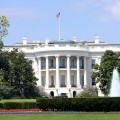As America readies to select a new slate of leaders, one issue in particular could have a profound and lasting effect on the millennial generation. The surging national debt, estimated at more than $19 trillion, could threaten this generation’s ability to succeed financially while also imperiling the country’s economic stability.
Millennials already endure unemployment rates, lower wages and skyrocketing tuition costs, prompting astronomical student loan debt. The country’s debt, unless addressed, will pile onto this, adding to the burden the next generation already faces, some economists say.
The Problem is Big and Getting Bigger
On its current path, the country’s national debt is expected to climb to 131% of gross domestic product (GDP) within 25 years, according to the Congressional Budget Office. Less optimistic figures place debt at 175% of GDP in the next quarter century. Annual deficits are expected to surpass $1 trillion by 2022, while the country is on track to spend some $6 trillion in debt service over the next 10 years. All of that simply means in the very near future the country will spend more on its past than its future, according to a Time magazine article written by Michael A. Peterson, president and CEO of the Peter G. Peterson Foundation.
You Might Also Enjoy: Millennials Outshine their Elders in Socking Savings Away
America’s debt is the world’s largest for a single country. It’s comparable to the debt held by the entire European Union, which represents 28 countries.
America’s debt comes from two main sources. An estimated two-thirds is owed by the government in repayment of Treasury bills, bonds and notes. The other third the government owes itself, mainly due to decisions in the past to borrow from funds, such as Social Security, to pay for other government functions.
What it Means for Millennials
Millennials are likely to inherit a country saddled with debt unless a viable plan is put into action. This could affect their economic opportunities including paying off student loans, starting businesses and home ownership. The connection between the nation’s financial health and the kind of economy millennials will inherit is clear.
Millennials are well aware of the connection. In February, the Global Strategy Group and North Star Opinion Research released poll results that indicate millennials keenly understand the dire situation they face. Out of 1,006 registered voters polled nationally, some 90% of millennials say the country would benefit from a long-term plan to address debt. A total of 85% of millennials acknowledged their generation would be greatly impacted by how the national debt is addressed by the next President.
Despite understanding the uncertain economic future that awaits them, millennials continue to lag behind other generations in their participation in the electoral process. As the country’s debt clock climbs and meaningful solutions to debt remain elusive, this generation in particular needs to be concerned about the economic future and what can be done to set it on a more secure path. As Peterson pointed out in Time, millennials have the most to gain – or lose – depending on how the country’s financial policy issues are handled in the next few years.






